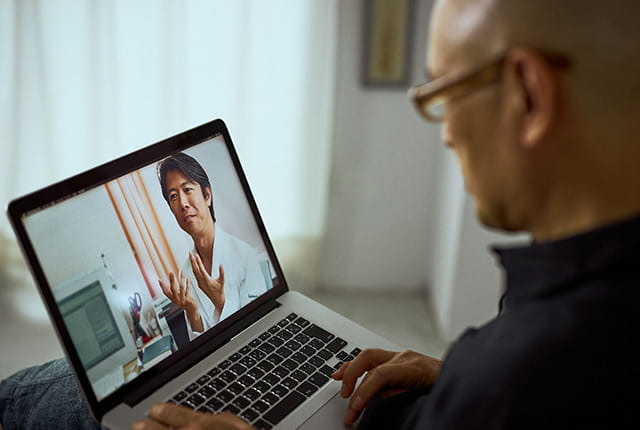What Is Cardioversion?
Cardioversion is a procedure to correct arrhythmias, which are a heartbeat that is too slow, too fast or irregular. Having an arrhythmia may prevent your body from getting the blood and oxygen it needs. Chemical cardioversion uses medicines, while electrical cardioversion uses electric shocks to treat your arrhythmia.
Your healthcare provider will give you detailed instructions about preparing for your procedure. Before your cardioversion, you may need to have a transesophageal echocardiogram (TEE), which is an ultrasound to check for clots in your heart. You also may need to take blood thinning medicine for several weeks to help reduce your risk of developing blood clots. On the day of your cardioversion, you may need to avoid eating, drinking or taking certain medications after midnight. You should arrange for a responsible adult to drive you home and stay with you for 24 hours. This person can call 911 if you have problems after your cardioversion.
During this procedure, you will be placed on a heart monitor (EKG machine) that records your heart’s electrical activity. Your healthcare provider will inject one or more medicines through an intravenous (IV) line in your arm, which will help change your heartbeat to a normal rhythm. You may feel light-headed, dizzy or nauseous.
During this procedure, you will be given medicine through an IV line in your arm to keep you asleep and free from pain. You will be placed on a heart monitor (EKG machine) that records your heart’s electrical activity. A healthcare provider will also monitor your blood pressure and oxygen levels during the procedure.
After your procedure, healthcare providers will monitor your heartbeat, blood pressure and oxygen levels. You may feel drowsy from the medicine you were given during the procedure. Your chest may be red or sore where the pads were placed. This should go away in a few days. You may need to stay in the hospital for monitoring, or you may go home when your care team determines you are ready.
Your skin may be burned from the electric shocks. Cardioversion may cause a blood clot to travel to your heart or brain and cause a heart attack or stroke. You may develop a life-threatening arrhythmia or low blood pressure during cardioversion. You may need medicine or more electrical shocks to treat this. Even with cardioversion, your heartbeat may not change or may not stay regular.
You have the right to help plan your care. Learn about your health condition and how it may be treated. Discuss treatment options with your healthcare providers to decide what care you want to receive. You always have the right to refuse treatment.
Navigate Your Health


Find a Heart & Vascular Physician
Find a Heart & Vascular Physician
Meet our doctors who specialize in the full range of heart and vascular care. Our team of experts has experience in a variety of specialty areas. Together, we provide comprehensive evaluation, diagnosis and treatment options.
Find a Doctor

Patient Portal
Patient Portal
If you are a patient at Orlando Health Heart & Vascular Institute, our free online patient portal provides an easy and secure way to manage your health information. Reach us from any location at a time that’s convenient for you.
Learn More

Virtual Visit
Virtual Visit
Need to talk with a doctor, but don’t want to leave your home? Try our virtual visit (telehealth) option to connect with a physician from your phone, tablet or computer.
Learn More
